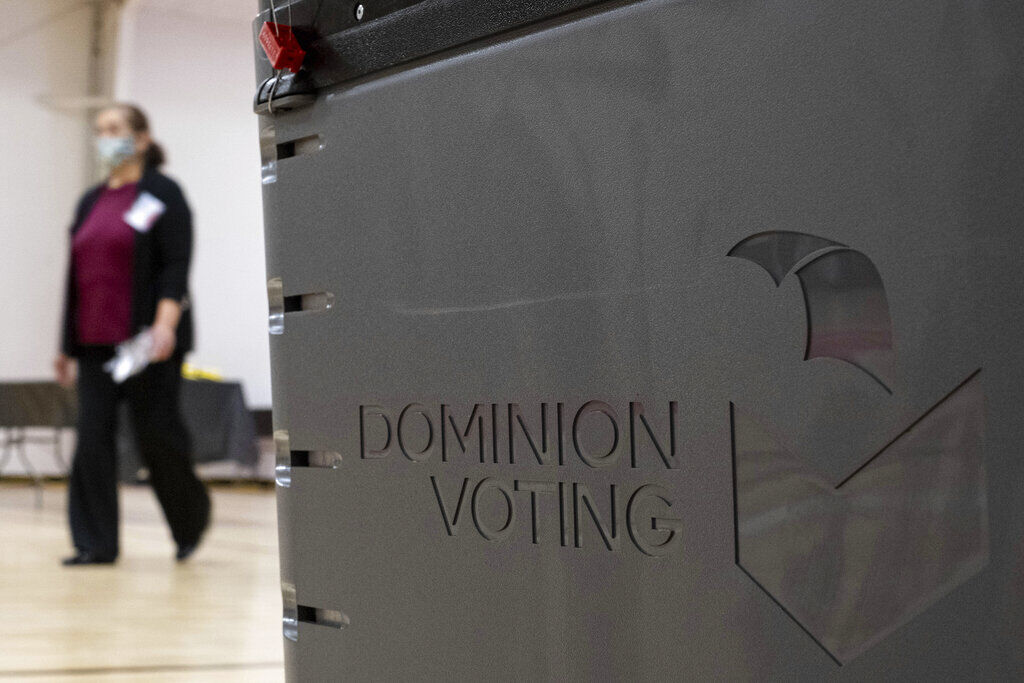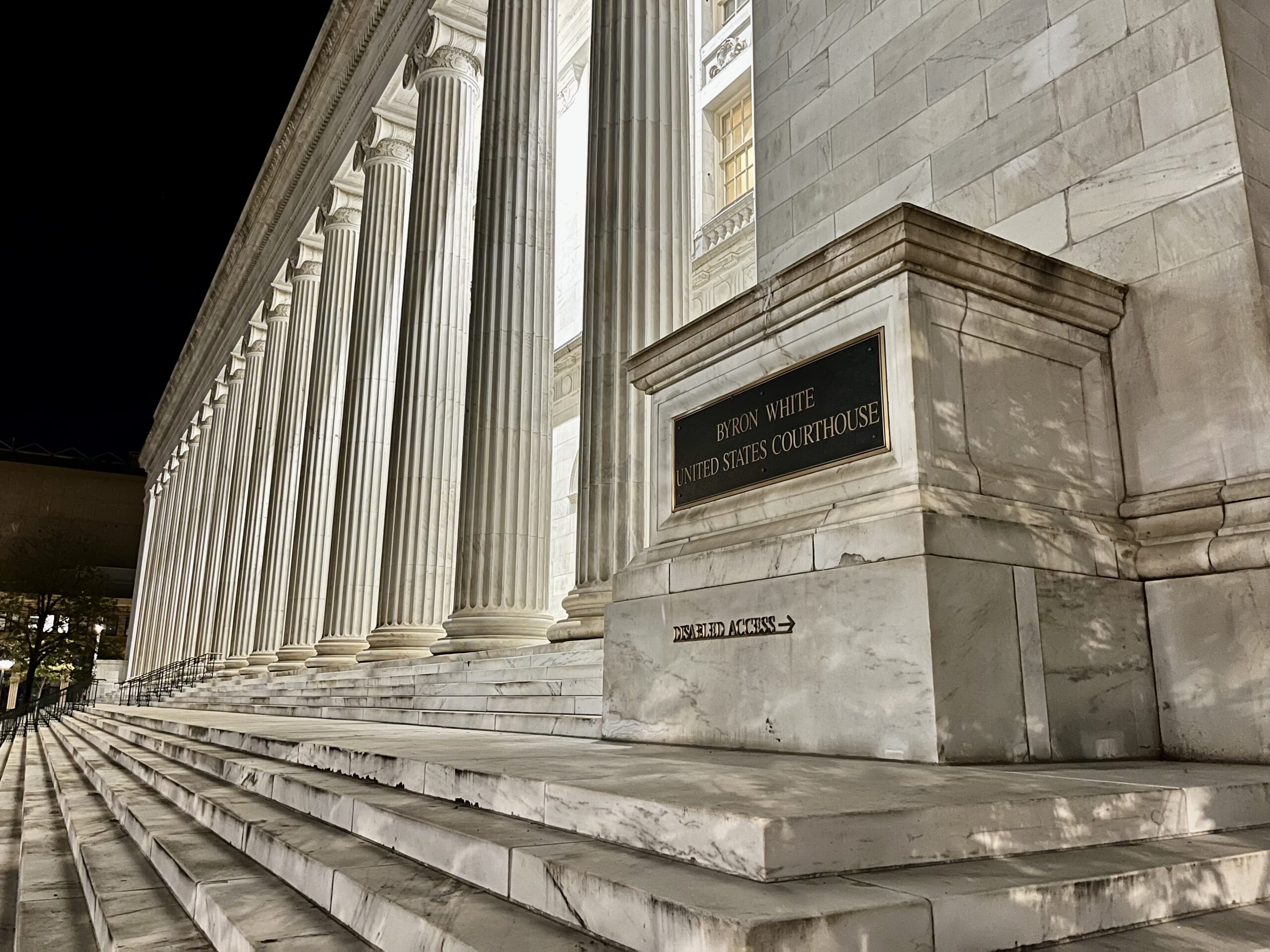10th Circuit tosses ‘frivolous’ claims against Dominion Voting brought by Michigan residents

The federal appeals court based in Denver agreed on Wednesday that a handful of Michigan residents lacked standing to sue Dominion Voting Systems, Inc. solely because they each received a letter asking them to stop making defamatory statements about the election technology supplier.
Dominion, which is headquartered in Colorado, became the subject of election-rigging conspiracies after the 2020 presidential campaign. The company fought back against the damaging allegations – most notably reaching a $787 million settlement with Fox News over the network’s role in amplifying unproven claims that Dominion equipment contributed to Donald Trump’s election loss.
As part of its effort to counter defamation, it sent cease-and-desist letters to a handful of Michigan residents and poll watchers who authored affidavits attesting to alleged election irregularities they witnessed at a polling center in Detroit. Dominion took no further action against the recipients of the letters.
Nonetheless, eight of the Michigan poll watchers filed an intended class action lawsuit against Dominion, accusing it of violating anti-racketeering law and inflicting “confusion, fear, and emotional distress.” A federal judge last year threw out the lawsuit, and a three-judge panel of the U.S. Court of Appeals for the 10th Circuit similarly saw the claims as non-starters.
Judge Nancy L. Moritz, in the panel’s Dec. 13 order, labeled as “frivolous” the plaintiffs’ assertion that Dominion’s letters infringed upon their First Amendment rights – a claim that only applies to the government or those acting on behalf of the government. Instead, the plaintiffs had not shown how the government gave any direction to Dominion over the letters.
“Plaintiffs’ allegations entirely fail to appreciate, recognize, or acknowledge the distinction between Dominion’s general business of supplying voting systems and the actual conduct challenged here: sending the letters,” she wrote. “Plaintiffs’ claim to a legally protected First Amendment right is accordingly ‘legally frivolous,’ and their alleged First Amendment injury is not sufficient.”
Judge Harris L Hartz wrote separately to clarify that he believed the plaintiffs could have made a plausible argument Dominion’s actions deterred them from speaking about election integrity, or caused other injuries that could support a legal claim.
“In my view, however, Plaintiffs did not adequately present any theory of standing in district court,” he concluded.
Case: Cooper v. US Dominion, Inc.
Decided: December 13, 2023
Jurisdiction: U.S. District Court for Colorado
Ruling: 3-0
Judges: Nancy L. Moritz (author)
Veronica S. Rossman
Harris L Hartz (concurrence)
Background: Lawsuit against Denver-based Dominion Voting tossed after judge finds no basis for claims
Although the plaintiffs’ lawyer told the 10th Circuit at the outset that the case was not about the 2020 election results, he described at length the ways in which President Joe Biden’s victory in Michigan was the alleged product of poll worker misconduct, as attested to by the plaintiffs in signed affidavits.
Subsequently, “these plaintiffs received letters that essentially accused them of wrongdoing and threatened them with litigation, saddled them with the burdens of preserving documents and silencing themselves,” attorney Robert A. McGuire III told the appellate panel during oral arguments. He alleged the letters amounted to “witness intimidation.”
The form letters informed recipients about the “myriad defamatory and conspiratorial claims” circulating about Dominion, and communicated the “formal notice to cease and desist” making false claims about the company. The letters asked recipients to “preserve all documents and communications that may be relevant” to a lawsuit.
Dominion did not communicate further with the plaintiffs, and later explained such notices are commonly required by state law.

michael.karlik@coloradopolitics.com
The plaintiffs, in turn, filed suit nine months later, alleging Dominion was a “state actor” whose letter had a chilling effect on their speech. They also accused the company of violating federal organized crime law and instilling a “crippling fear of becoming the next target of a billion-dollar lawsuit.”
Last year, U.S. District Court Chief Judge Philip A. Brimmer found the plaintiffs lacked standing because they had not alleged any specific injury or reasonable fear of being sued.
On appeal, the 10th Circuit panel appeared sympathetic to the plaintiffs’ concern that Dominion could actually haul them into court for their statements about the 2020 election.
“Why would the fear of litigation be gone?” wondered Judge Veronica S. Rossman.
“I can’t think of anything more disturbing than to be accused by a large corporation of misconduct when you did nothing along those lines. That’s scary,” said Hartz. “I don’t know if you’ve ever been accused of something you had nothing to do with, but that’s pretty traumatic.”
Ultimately, however, the panel agreed the various allegations of injury – ranging from invasion of privacy to emotional distress – lacked specificity.
“(A)side from alleging that one plaintiff tried to call Dominion’s defamation counsel, the complaint does not say that any plaintiff actually responded, refrained from speaking, or preserved documents,” wrote Moritz.
She added that because Dominion was not acting at the behest of the government, the plaintiffs could not pursue claims either under the First Amendment or the constitutional guarantee of equal protection under the laws.
The case is Cooper et al. v. US Dominion, Inc. et al.













